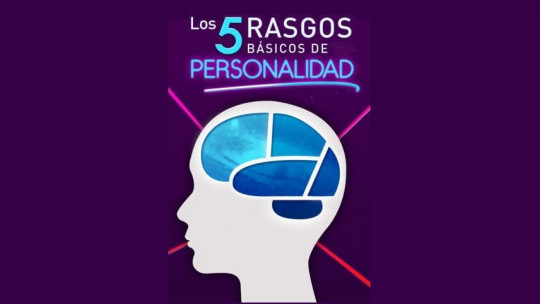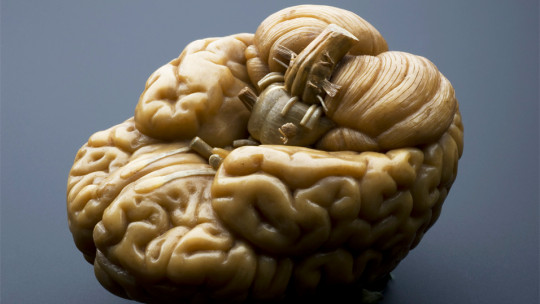When we talk about openness to experience (openness to experience), we refer to the breadth, depth and complexity of a person’s mental life. People who are highly open to experience tend to be creative, curious and imaginative and tend to be interested in new experiences.
In most cases, this personality trait remains stable in the long term. However, there is also evidence that people experience temporal fluctuations in terms of mental states and in relation to personality traits. In this PsychologyFor article we will delve into this trait to better understand What is openness to experience in psychology
What is openness to experience
Openness to experience in psychology is one of the five fundamental traits used to describe human personality in the theoretical model of the five factors or Big Five. This dimension involves five facets or subdimensions:
- Active imagination (fantasy).
- Aesthetic sensitivity.
- Pay attention to internal feelings.
- Preference for variety.
- Intellectual curiosity.
A large amount of psychometric research has shown that these qualities are significantly related, so open-mindedness can be seen as a global personality trait which consists of a set of specific sub-traits, habits and tendencies that are grouped together.
In what aspects is openness to experience manifested?
Openness to experience has positive relationships with traits such as creativity, intelligence, and desire for knowledge. These aspects are linked to a favorable disposition towards news the ability to consider multiple perspectives and an open mind towards diverse values, styles, ways of life and cultures.
However, compared to other personality traits in the five-factor model, openness to experience does not appear to be related to symptoms of mental disorders.
Characteristics of people with openness to experience
Openness to experience shows the extent to which an individual tends to seek new personal experiences Specifically, the characteristics of people with openness to experience are the following:
- They are creative.
- They are adventurous.
- They are curious and interested in knowing the world.
- They long to experience new challenges.
- They are imaginative.
- They appreciate art and aesthetics.
- They accept their emotions and those of the people around them.
- They prefer to break the routine.
On the contrary, in the case of little openness to experience we find individuals who do not like to experience new things and who move away from abstract and theoretical thinking. These people tend to have a more conventional outlook, prefer familiar routines to new experiences, and generally have a shorter list of interests.
If you want to know how to deal with changes in your life, you can read the article on how to adapt to changes.
How to develop openness to experience
If you want to develop the personality of openness, don’t miss the following recommendations:
- Alter your habits : Stop being routine in all aspects of your life. Change the way you do things: Do you take the bus to work every day? Starting today, at least once or twice a week, get around by bike. Is it raining and you hate leaving the house in the rain? Get dressed, grab your umbrella and go for a walk in the rain.
- Do what you don’t know : In general, we always tend to do what we are used to and we do not decide to try new activities for fear that we will not like them or they will be boring. Do you love football and play it regularly, but you have no idea what it is to paint ceramics? It’s time to try it! Have you never eaten sushi? Make a reservation at the Japanese restaurant tonight. It’s all a matter of trying it.
- Never blindly trust what others tell you : If you have never done something or are not informed about it, it is impossible to know if what others tell you is as they describe it. Investigate, study, inform yourself to ensure that the information they provide you is reliable. An open mind does not delegate experiences to others.
- Do not be afraid : If you put fear before anything new you have to do, you will hardly make new discoveries. Abandon fear of anything that does not fit into your life patterns. Don’t be afraid of someone who dresses differently than you, who doesn’t speak your language, or of trying something new you’re interested in just because of what others may say.
- Be critical and skeptical : Having an open mind is important to develop openness to experience, as well as cultivating critical thinking (which does not necessarily have to be controversial). There will always be someone who tells you that you are afraid of this or that: are you ready to ask yourself why? There will always be someone or several people who will want you to think the same as them. Learn to be critical because the mechanisms of conformism often tend to be enemies of a mind open to experience.

Examples of openness to experience
Openness to experience is characteristic of people with a flexible mindset , curious and creative, as well as motivated to explore the world and take advantage of its possibilities. The difference between open-minded people and closed-minded people is the attitude they have to overcome problems and face life’s challenges. Let’s look at some examples of typical characteristics and virtues of people open to experience:
- Willing to listen the opinions of others.
- Liberals, capable of accepting points of view different from their own.
- Tolerant, then accept the beliefs and lifestyles of others without criticizing them even if they disagree with them.
- Open-minded, willing to develop new ideas and are hardly disturbed by the diversities of others.
- Receptive because they listen carefully what others have to say and takes suggestions into account without being presumptuous.
- Adaptable, as they can easily change their behavior or ideas to solve problems that arise.
- Entrepreneurs because They are always willing to try new things
- “Live and let live” because they find it very annoying to impose beliefs, lifestyles or ideas.
This article is merely informative, at PsychologyFor we do not have the power to make a diagnosis or recommend a treatment. We invite you to go to a psychologist to treat your particular case.
If you want to read more articles similar to What is openness to experience in psychology we recommend that you enter our Personality category.
Bibliography
- Cuminetti, A. (2016). Come have an open mind and free yourself from prejudices. Retrieved from: https://www.psicosocial.it/come-avere-una-mente-aperta/









